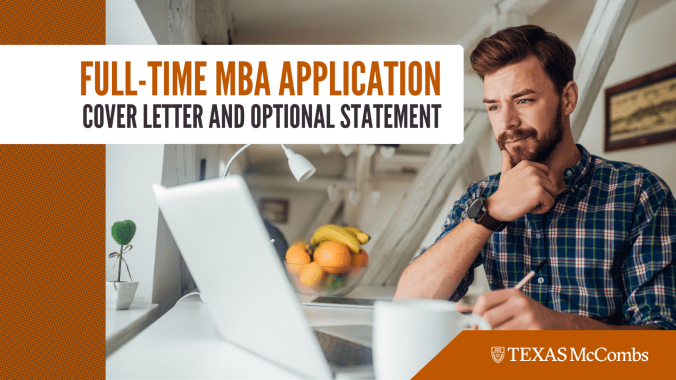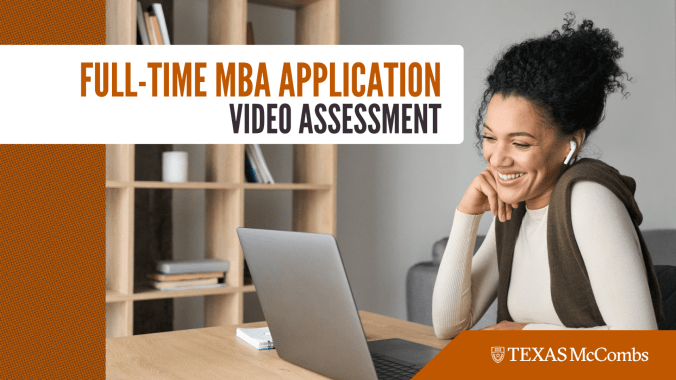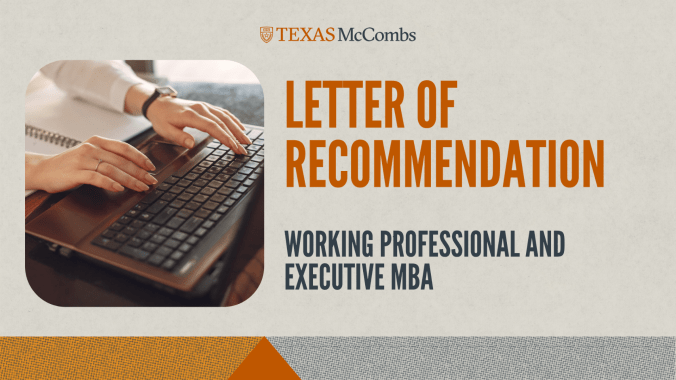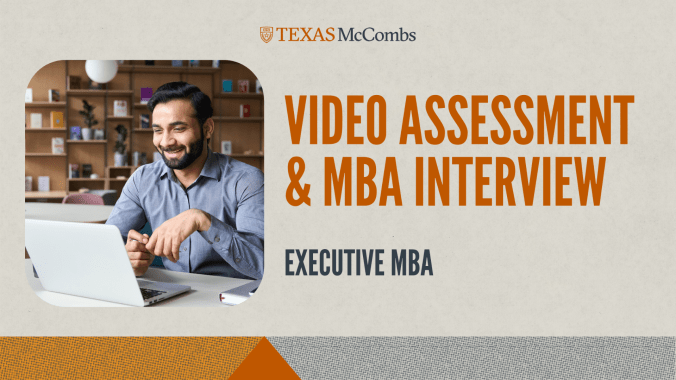MBA Cover Letter
The application cover letter is a critical means of learning who you are as an applicant and assessing your communication and writing skills. Here is the prompt to help guide you in writing the application cover letter:
Please write an application cover letter summarizing your aspirations, qualifications, personal and professional experiences that make you a strong candidate for the Texas Full-Time MBA program. (max 500)
MBA Optional Statement
Please provide any additional information you believe is important or address any areas of concern that you believe will be beneficial to the MBA Admissions Committee in considering your application. (e.g. gaps in work experience, choice of recommender, academic performance, or extenuating personal circumstances) (250 words)
Honestly, the most important piece of advice we can provide you on the optional statement is to remember that it is just that– optional. Only applicants who feel some of their profile deserves more explanation should submit an optional statement. This section of the application is not to designed for you to tell us more about your extracurricular activities or expand upon the essay prompt. While we love to see how excited you are to share additional information with us, there are other ways to let the Admissions Committee know about additional projects or passions. Your resume and the video assessment are better forums for these additional details. Optional statements should focus on filling gaps or answering questions we are likely to have about you.
Our Tips for Writing Your Cover Letter
- Be patient with yourself. Take time to reflect, brainstorm, rewrite, and EDIT. It will likely take more than one draft to realize your final submission.
- Don’t copy and paste. Do not use the same content for multiple business schools. We can always spot recycled content.
- STAY ON PROMPT. We actually want your submission to be in cover letter form! Approach this as you would drafting a cover letter for a job – who are you, why do you want to come to McCombs, and how will you contribute to the program?
- Be honest. The cover letter is a way to learn more about you. Our community values authenticity and we look for submissions that reflect your authentic self.
- Have someone you trust read over your cover letter. Those closest to you can provide valuable insights, feedback, and perspectives as you highlight your personal gifts and qualities.
We hope these insights into the written portions of our application give you some ideas to think about and some points to revisit as you write (and rewrite) your cover letter. Good luck, and happy applying!
If you have any questions during the application process, we’re here to help. Please visit our website for details on applying to each program and follow us on Instagram for an inside look into the Texas McCombs MBA.









